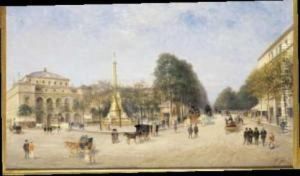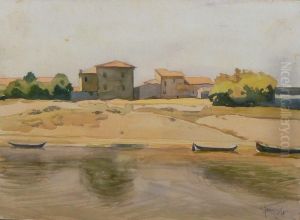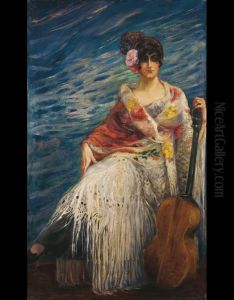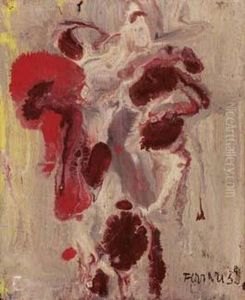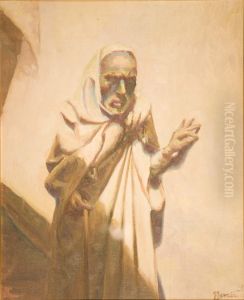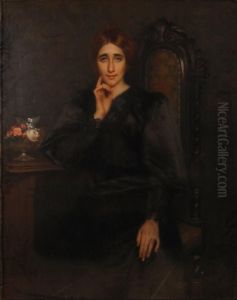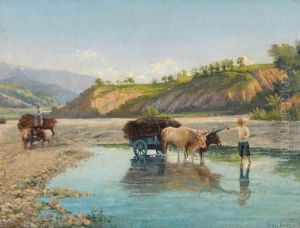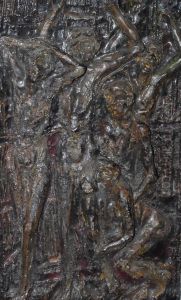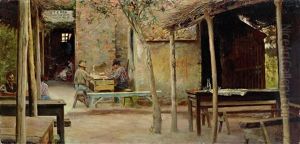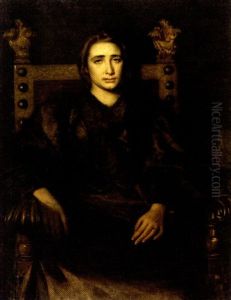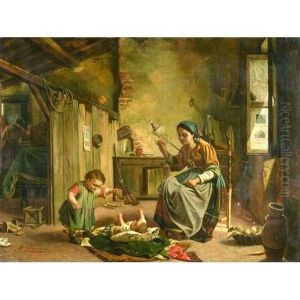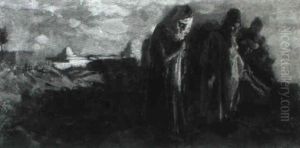Giuseppe Ferrari Paintings
Giuseppe Ferrari was an Italian philosopher, historian, and political thinker rather than an artist in the traditional sense of the term. Born on March 7, 1811, in Milan, which at the time was part of the Napoleonic Kingdom of Italy, Ferrari grew up during a period of significant political transformation and intellectual ferment. His work touched upon various aspects of society, politics, and history, and he is often remembered for his contributions to the development of democratic and republican thought in Italy.
Ferrari's education was comprehensive, reflecting the breadth of his interests. He studied at the University of Pavia and later at the University of Genoa, immersing himself in the classics, philosophy, and history. Ferrari's intellectual pursuits were deeply influenced by the ideals of the Enlightenment and the subsequent revolutionary movements that swept across Europe in the early 19th century.
After completing his studies, Ferrari began his career as a professor, but his tenure was short-lived due to his political activism. He was a proponent of Italian unification and was actively involved in the revolutionary movements of the 1820s and 1830s. His political activities eventually led to his exile from the Italian states, and he spent a significant amount of time in France, where he continued to write and engage with European intellectual circles.
Ferrari's historical and philosophical writings are characterized by a critical analysis of the development of political systems and ideas. He was particularly concerned with the role of democracy in society, and he advocated for a form of democratic republicanism. His works often critiqued the autocratic regimes of his time and explored the possibilities of a society based on popular sovereignty and civic virtue.
Ferrari returned to Italy after the establishment of the Kingdom of Italy in 1861 and continued his work as a writer and thinker. He served as a member of the Italian parliament, where he continued to advocate for democratic principles and reforms. Throughout his life, Ferrari's contributions to political thought were marked by a commitment to liberty, justice, and the potential for human progress through rational and collective action.
Giuseppe Ferrari's legacy extends beyond his own time, influencing subsequent generations of thinkers and activists. He passed away on July 2, 1876, in Rome. Although not an artist in the conventional sense, Ferrari's life and works remain a significant part of the intellectual history of Italy and the broader discourse on democracy and political theory.

